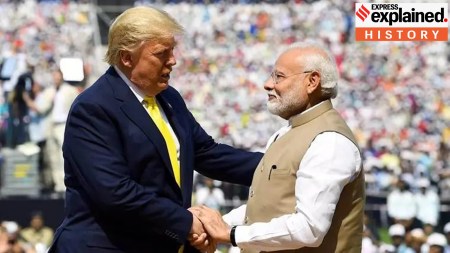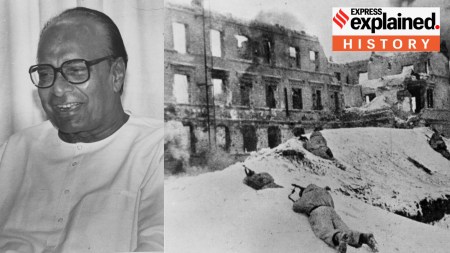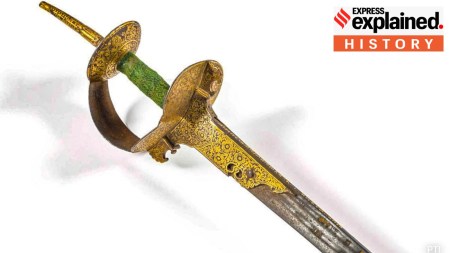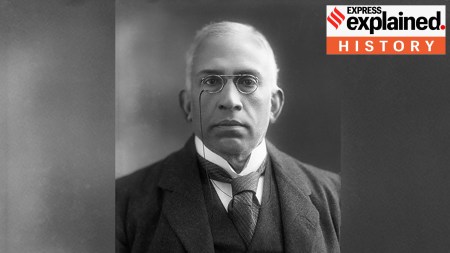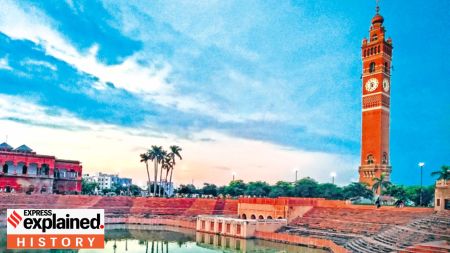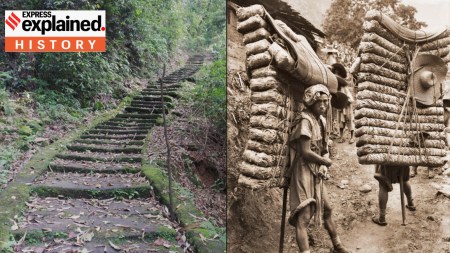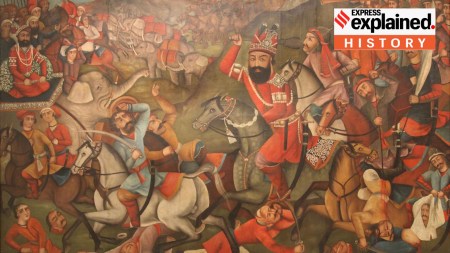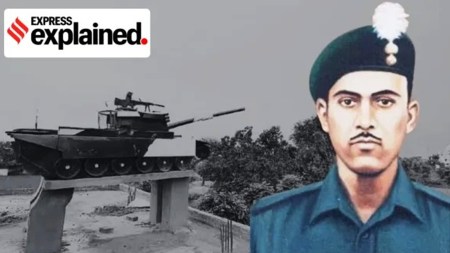EXPLAINED HISTORY NEWS - Page 3
Census dates announced: recalling the last caste census of 1931Subscriber Only
The last caste census took place in 1931. This data will form the baseline for the count of members of various castes in the upcoming Census. This is the story of Census of 1931, how it was conducted, and what it found
Metropole: House of luxury to enemy property to now a parking lot, Nainital hotel’s inheritance of lossSubscriber Only
Metropole is where Jinnah and his wife honeymooned in 1918. The design of its roof came to be known as Nainital-pattern-roofing, which the British then used across India. Why is the hotel being turned into a parking lot?
History of US role in India-Pakistan issues: Four wars, the hyphen, and TrumpSubscriber Only
US role in India-Pakistan conflict: What is India's hyphenation with Pakistan, and why does New Delhi oppose it? Why is New Delhi against third party intervention? And what has the US role been in India-Pakistan hostilities in the past? We explain.
When Nehru visited Pahalgam: Story of first PM’s last vacationSubscriber Only
Nehru travelled to Pahalgam with his daughter Indira Gandhi in June 1963, at a time when his political difficulties were mounting and his health was failing. He was on vacation, but he did some political work as well
On 50 years of Sikkim’s integration with India, recalling the role of royals, political partiesSubscriber Only
How did Sikkim become a part of India almost three decades after Indian independence? We recall the history.
Russia honours Biju Patnaik: What did he do during Battle of Stalingrad?Subscriber Only
While he may be remembered today as a political leader, in his youth Biju Patnaik was a fine aviator. He flew British aircraft during World War II
With Trump’s offer to place troops in Mexico, recalling the US’s previous military interventionsSubscriber Only
The prospect of military presence raises concerns, in no small part due to the countries’ history. Here is what to know.
A sword returns, a legacy revived: Why Raghuji Bhonsle’s weapon matters?Subscriber Only
The basket-hilt sword has a European-style single-edged blade, which is slightly curved, and two fullers — grooves or channels that run the length of the sword
The story of Golconda Blue, and of India’s once-legendary diamonds in GolcondaSubscriber Only
Today, Africa, Australia, and Russia are some of the key players in the diamond industry. Yet, the appeal and romance of Golconda diamonds endure. Here's their story.
When governments disagree with the central bank: the Fed in the US and the RBI in IndiaSubscriber Only
US President Donald Trump has threatened to sack Jerome Powell, whom he appointed to the Chair of the Federal Reserve in 2018. Such frictions are not unheard of in the US – or in India. But differences have mostly not been allowed to escalate into crises.
The fearless Sir Sankaran Nair and the story of the Jallianwala Bagh caseSubscriber Only
Since his early days as a lawyer, Nair came to be known for an uncompromising commitment to what he believed, irrespective of the strength of the opposition he faced.
Ambedkar Jayanti: How Babasaheb defined an ideal society in ‘Annihilation of Caste’Subscriber Only
Ambedkar Jayanti 2025, Caste System Critique: We recall a central idea of Dr BR Ambedkar’s seminal work, which was an extension of his views about the corrosive effects of the caste system.
Amid controversy in Bihar Sharif, a short history of clock towersSubscriber Only
Functionally, clock towers are all but redundant today. Yet new ones keep coming up from time to time. This is because beyond telling time, clock towers serve various symbolic purposes.
Story of Nintendo: How a company that made handcrafted playing cards became a billion dollar tech giantSubscriber Only
The Japanese company, most known for its video games and consoles, was founded in 1889. Today, it boasts a market cap of almost $90 billion
Why Trump’s tariffs are being compared to Smoot-Hawley Tariff Act, which worsened the Great DepressionSubscriber Only
Smoot-Hawley came to be seen as exemplifying “beggar-thy-neighbour” policies that benefited one nation at the expense of the rest. Here is what to know.
Explained: The decades old dispute over who controls Mahabodhi temple in GayaSubscriber Only
Buddhists want the repeal of the Bodh Gaya Temple Act, 1949 (BGTA), under which the temple is currently governed
The grave of Aurangzeb: What it tells us about the man, his lifeSubscriber Only
Aurangzeb's grave and the circumstances of his death hold many lessons for those interested in learning from history. We explain.
Could Gandhi have done more to save Bhagat Singh?Subscriber Only
Mahatma Gandhi has long been criticised for his alleged failure to secure a commutation of Bhagat Singh’s death sentence in the Gandhi-Irwin Pact. Could he have done more?
Prime Minister Modi attends Jahan-e-Khusrau: How 13th century poet is a flag-bearer of pluralistic Sufi traditionSubscriber Only
Khusrau made lasting contributions to Indian classical music and qawwali, and is also credited for developing Hindavi, a precursor to modern Hindi and Urdu.
How Chandra Shekhar remained ‘Azad’ until the very endSubscriber Only
The revolutionary freedom fighter had made a resolve to never be captured alive. So after being surrounded by police, and with only a single bullet left in his gun, Azad had only one option before him
How Savarkar’s ‘The Indian War of Independence 1857’ gave a national character to the revoltSubscriber Only
The characterisation of the revolt of the sepoys in his 1909 book, although not universally accepted, has been influential in how the events of 1857 are viewed till date
How the historic Tea Horse Road connected India to China, through TibetSubscriber Only
Although not as well-known as the Silk Road, which linked China and Europe, the Tea Horse Road was a crucial commercial pathway for centuries
How Nadir Shah’s victory in Battle of Karnal ended Mughal power in IndiaSubscriber Only
The Battle of Karnal, on February 24, 1739, saw Persian emperor Nadir Shah handing a crushing defeat to the forces of Mughal emperor Muhammad Shah Rangila, effectively ending Mughal power in India
On his birth anniversary, meet Bhagat Singh’s uncle Ajit Singh, who started Pagri Sambhal Jatta movementSubscriber Only
Who was Bhagat Singh's uncle Ajit Singh, and why is he an important figure for protesting farmers? What was the 'Pagri Sambhal Jatta' movement? We explain.
Row over UP school’s name: Recalling the story of Param Vir Chakra awardee Abdul HamidSubscriber Only
Hamid is known for his role in the Battle of Asal Uttar in Punjab. Here's the story of his gallantry in the 1965 India-Pakistan war.
BEST OF EXPRESS





